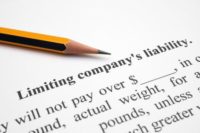Buying an existing business can be enormously rewarding. You won’t face the challenges of establishing a company from scratch, along with the massive time commitments needed to create dynamic business plans, finding lenders or investors–or both–and all the minutia of launching a business from ground up.
Using your attorney as a valuable source of solid advice and direction helps you make better decisions about and agreements when buying an existing business. One phrase should dominate all of your preparations: Due diligence.
You may be familiar with the phrase, caveat emptor, loosely translated as “let the buyer beware.” Due diligence goes far beyond this common warning–and must be your first step when considering buying an existing business.
Due Diligence
Investigate every aspect of a business you consider buying. Open the closets. If you find any skeletons, track and eliminate them. if possible.
You have a personal and legal responsibility to perform a thorough due diligence examination of every aspect of a business you consider buying. Assume that current owners will accentuate the positives and attempts to hide the negatives from prospective buyers.
This is natural and not illegal. It’s up to you to identify and evaluate the positive features, while finding the negatives that could cost you money. It is up to you to ask the right questions and investigate every aspect of the company you’re considering.
Financial Position
Diligently research every financial condition of the business. Get your own answers to the following questions, at a minimum.
* Is cash flow strong and consistent, providing sufficient cash to make the business viable, both historically and going forward?
* Is the business carrying a reasonable amount of debt? Or too much?
* Do the financial statements offered match company tax returns, allowing for variations in presentation required by IRS regulations?
* Does the aged accounts receivable and payables identify potential problems in receiving or making timely payments?
Legal
Examine all existing and “in negotiation” contracts. Are they reasonable? Fair? Equitable? Are future contracts in the discussion stage acceptable to you?
Are there any pending lawsuits that could impact the business? Full disclosure of potential legal action is vital to your analysis of the company.
Is there a history of compliance issues, whether resolved or pending? Compliance problems are often costly to defend and correct.
Employee Quality and Agreements
Examine all personnel files for appropriate documentation. Look for commendations, problem resolution, non-compete agreements and performance reviews.
Company Organization and Structure
Is the business organized properly? Are their minority owners? Is the business structure–and its taxation issues–conducive to efficient operations, compliance and financial stability?
The Bottom Line
Make no firm offers until you know what you are buying. Insist on receiving understandable answers to your questions–and those of your attorney and accountant–before entering negotiations. Keep your lawyer involved in all phases of due diligence and purchase negotiations.
Maintain your objectivity. Examine everything that contributes to company viability and profitability. You’ll be happy you left no stone unturned, however minor.
Ryan C. Young | Business Law | Richmond, Virginia




